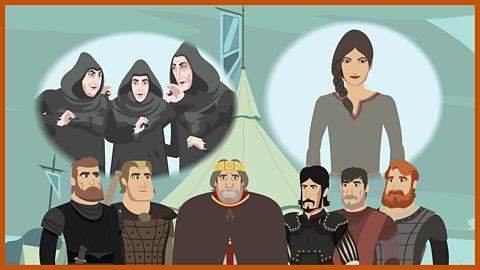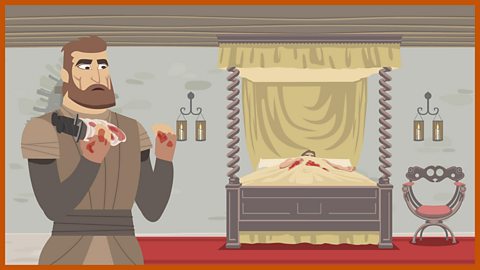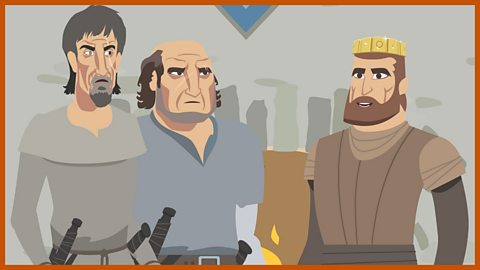1: The Weird Sisters
Scotland in the 11th century. Macbeth is leading the army for King Duncan against the invading Norwegians and a group of Scottish rebels. Once victory is secure Macbeth and Banquo set off to bring King Duncan the good news.
However on a desolate heath on the way to King Duncan's camp they come across three strange creatures - the 'Weird Sisters', or Witches. The Sisters seem to know exactly who Macbeth and Banquo are. They prophesy that Macbeth will soon be named Thane of Cawdor and later King of Scotland. They also prophesy that Banquo's descendants will become kings.
Macbeth and Banquo want to know more, but the Witches disappear into thin air.
Teacher Notes
This series provides various opportunities to meet Key Stage 2 National Curriculum requirements, including study of a significant author, reading techniques such as prediction, drawing inferences, clarification and summary; and drama and writing opportunities - including poetry performance, descriptive writing, persuasive writing, letter writing, newspaper article writing, poetry and play scripts.
It could be used as an introduction to the play, consolidation of key aspects or for revision of the plot and characters.
More detail on how to use this series, including detailed lesson plans, can be found in the Teacher's Notes PDF.
Information and guidance on using the content

This series is relevant for teaching English at KS2, in England and Wales and Northern Ireland, and at Second Level in Scotland.
2. All Hail, Macbeth! Thane of Cawdor! video
Macbeth and Banquo arrive at King Duncan's camp; Macbeth finds he is now Thane of Cawdor.

3. Daggers for King Duncan. video
Macbeth returns to Dunsinane where Lady Macbeth persuades him to murder King Duncan.

4. All Hail, Macbeth! King of Scotland! video
Duncan's murder is discovered; Malcolm and Donalbain flee, while Macbeth is crowned king.
